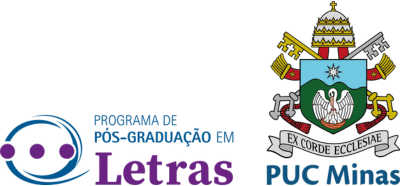Literatura itinerante, l’absence d’oeuvre, e capital simbólico: o caso de Edgar Allan Poe
DOI:
https://doi.org/10.5752/P.2358-3428.2018v22n44p105Palabras clave:
Literatura itinerante, Michel Foucault, Edgar Allan PoeResumen
A literatura viaja para outros tempos e lugares e, no percurso, é afetada por mutações e reavaliações. O entendimento tradicional dessas alterações em termos da apropriação de um significado original a ser reinterpretado no momento da recepção relega a segundo plano as condições estruturais do objeto original que possibilitam reapropriações. A ênfase na reprodução do sentido no momento da recepção tende a preservar a autonomia tanto do autor que produz como da obra executada. O conceito foucauldiano de “absence d’oeuvre”, ao propor um vazio na origem da obra, abre caminho para um entendimento das condições de possibilidade da viagem do literário e das transgressões e revalorizações que a acompanham. A viagem da obra literária de Edgar Alan Poe ilustra exemplarmente a ocorrência dessas mutações transgressivas.
Descargas
Citas
BAUDELAIRE, Charles. Correspondence. In Oeuvres Complètes de Charles Baudelaire, ed. Jacques Crépet. Paris: 1923-1953, 19 vols.
BOURDIEU, Pierre. Social Space and Symbolic Power. Sociological Theory, vol 7, No. 1 (Spring 1989), pp. 14-25.
CAMPOS, Haroldo de. de; CAMPOS, Augusto de. de; PIGNATARI, Décio. Teoria da Poesia Concreta. São Paulo: Duas Cidades, 1975.
CARLSON, Eric, ed. The Recognition of Edgar Allan Poe. Ann Arbor: The University of Michigan Press, 1970.
FOUCAULT, Michel. Qu’est-ce qu’un auteur? In Dits et écrits. (Paris: Gallimard, 1994), vol. 1, pp. 789–821.
FOUCAULT, Michel. La folie, l’absence d’oeuvre. In Dits et écrits. (Paris: Gallimard, 1994), vol. 1, pp. 412-420.
FOUCAULT, Michel. As Palavras e as Coisas: Uma arqueologia das ciências humanas. São Paulo: Martins Pontes, 2000.
ELIOT, Thomas Stern. From Poe to Valéry. In CARLSON, E. W., ed. The Recognition of Edgar Allan Poe. Ann Arbor: The University of Michigan Press, 1970.
HUXLEY, Aldous Leonard. Vulgarity in Literature. In CARLSON, E. W., ed. The Recognition of Edgar Allan Poe. Ann Arbor: The University of Michigan Press, 1970.
JAMES, Henry. Comments. In CARLSON, E. W., ed. The Recognition of Edgar Allan Poe. Ann Arbor: The University of Michigan Press, 1970.
LACAN, Jacques. Écrits I: Paris: Éditions du Seuil, 1966.
LOWEL, James Russel. Edgar Allan Poe. In CARLSON, E. W., ed. The Recognition of Edgar Allan Poe. Ann Arbor: The University of Michigan Press, 1970.
POE, Edgar Allan. The Philosophy of Composition. In POE, Edgar Allan, Essays and Reviews. New York: The Library of America, 13-25.
PRATT, Mary Louise. Arts of the Contact Zone. Profession (1991), 33-40.
QUINN, Patrick F. The French Face of Edgar Poe. Carbondale: The Southern Illinois University Press, 1971
VALÉRY, Paul. The Collected works of Paul Valéry, ed. Jackson Mathews. Princeton: Princeton Universy Press, 1956-1975, 15 vols.
VINES, Lois Davis, ed. Poe Abroad. Iowa: University of Iowa Press, 1999.
Descargas
Publicado
Cómo citar
Número
Sección
Licencia
DECLARACIÓN DE DERECHO AUTORAL
Derechos autorales
El envío de cualquier colaboración implica, automáticamente, la cesión integral de los derechos autorales a PUC Minas. Se solicita a los autores que aseguren:
- inexistencia de conflicto de intereses (relaciones entre autores, empresas/instituciones o individuos con interés en el tema abordado por el artículo), y
- órgano o instituciones financiadoras de investigación que ha dado origen al artículo.









